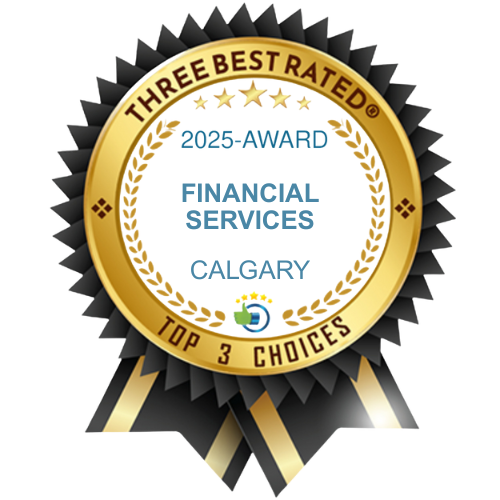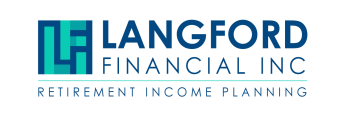Why are financial decisions so difficult?
Buying a new home. Upsizing. Downsizing. Taking a new job. Investing.
Here's what I think is the biggest challenge of our time. Headlines that grab our attention.
"Home prices could slump 20% in some markets warns OSFI chief"
"70% of Canadians are worried about covering retirement costs"
"Canada’s economy is seen growing at 6.3 percent, beating the central bank’s forecast"
"Breaking: U.S. economy adds 467,000 jobs to defy Omicron"
"Canada loses 200,000 jobs, nearly double the blow economists expected"
These headlines are called "Clickbait", designed to grab your attention and lure you into reading the article. The author of the article is taking an angle on some subject matter and presenting an argument either for or against it. Their motivation is to get an audience and sell something - mainly advertising.
You can't make decisions that have long-lasting impacts based on the headlines.
Here are some tips to help you make sense of it all:
1. There is always a crisis somewhere - there always has been and there always will be. They do not last forever and you can't avoid the storms so you have to learn how to endure them.
2. Everything in life goes in cycles. There's the economical cycle. There's a cycle in the animal kingdom. The tides. The way the earth revolves around the sun and creates seasons.
3. Simplify everything with systems and processes.
There are two distinct parts to managing your money. First, there's growth and second, there's income. I like to call it accumulation and decumulation. You spend the first half of your life making it (accumulation) and the second half spending it (decumulation). If you have a diversified portfolio with a mix between Canada, the USA, and International equities you can expect an overall average rate of return of 8-9%/year over the long term. Really, this is the easy part and it's too simple for most people to believe and accept.
Decumulation is the difficult part.
The reason it's so difficult is that the markets do not perform on a consistent basis. Some years are up and some years are down, and you never know which parts of the market are going to over or underperform other parts at any given time. By the time you figure it out, you have missed it.
In the past, you could use bonds as the income part of your portfolio and rely on a 4-5% annual yield and you were off to the beach or the golf course. It's not that easy anymore, especially when most bond funds were negative last year and have been horrific so far in 2022. In order to get a higher rate of return, you have to buy the high yield bonds which are no less risky than owning stocks.
There are a few ways you can navigate this dilemma.
First, you should always keep some money in cash.
Secondly, you can keep 1-2 years of cash flow in a lower volatility fund.
It isn't necessary to limit the growth of your overall portfolio by putting everything into a fixed income strategy just because you are getting older. In fact, it's one of the biggest mistakes retirees often make. Let's say you have a million dollars. You can allocate $200,000 for generating your monthly income and allocate $800,000 to ongoing growth in the public markets. Every year, you can move $50,000 from the growth portion over to the income portion.
Another idea is to use up more of your own money early in retirement and defer your government benefits to age 70. In doing this you de-risk your retirement by having a larger guaranteed income for the latter years of retirement. By deferring CPP & OAS to age 70 you'll get 42% and 36% more. A second benefit is that you are less dependent upon market returns and you are able to weather market volatility. A third benefit is that these government pensions are indexed to inflation.
Another idea is to maximize TFSAs for several years and then plan to live on more of that money for the latter years. The advantage of this strategy is that your tax rate will be lower because your withdrawals from your TFSA are tax-free. The less tax you pay - well the more cash flow you have in your pocket. Also, having less taxable income may result in qualifying for more government benefits that are means-tested. How about taping into your home equity on a tax-free basis by using a reverse mortgage or a line of credit. How about looking at an insurance policy for your individual life or a joint and last-to-die policy if you are married.
You never have to live in fear of the future when you have a plan.
Both you and I have lived enough life to know that storms are inevitable. There will be market volatility, market crashes and corrections. There may be a dozen recessions yet in our lifetime. However, you don't have to live your life in fear wondering if you are going to run out or end up being a burden to your kids when you have a proper retirement income plan. This is what we believe every retiree needs and it's why we do what we do.
What we sell is advice, planning, peace of mind, confidence, clarity, and simplicity.
If this is what you would like for your future then we invite you to book an appointment and come in to see us. Every single client we work with starts with a proper retirement income plan. You can implement that plan on your own, with your current advisor, or with us. That choice is always yours and we will help you determine what is best for you.
Learn more about our process and to book an appointment
Retirement Income, Investment, & Tax Planning,
Willis J Langford BA, MA, CFP
Nancy R Langford CRS
Hervin Pesa BA, CFP







